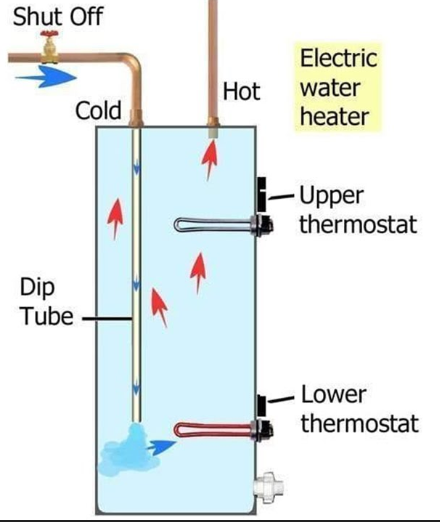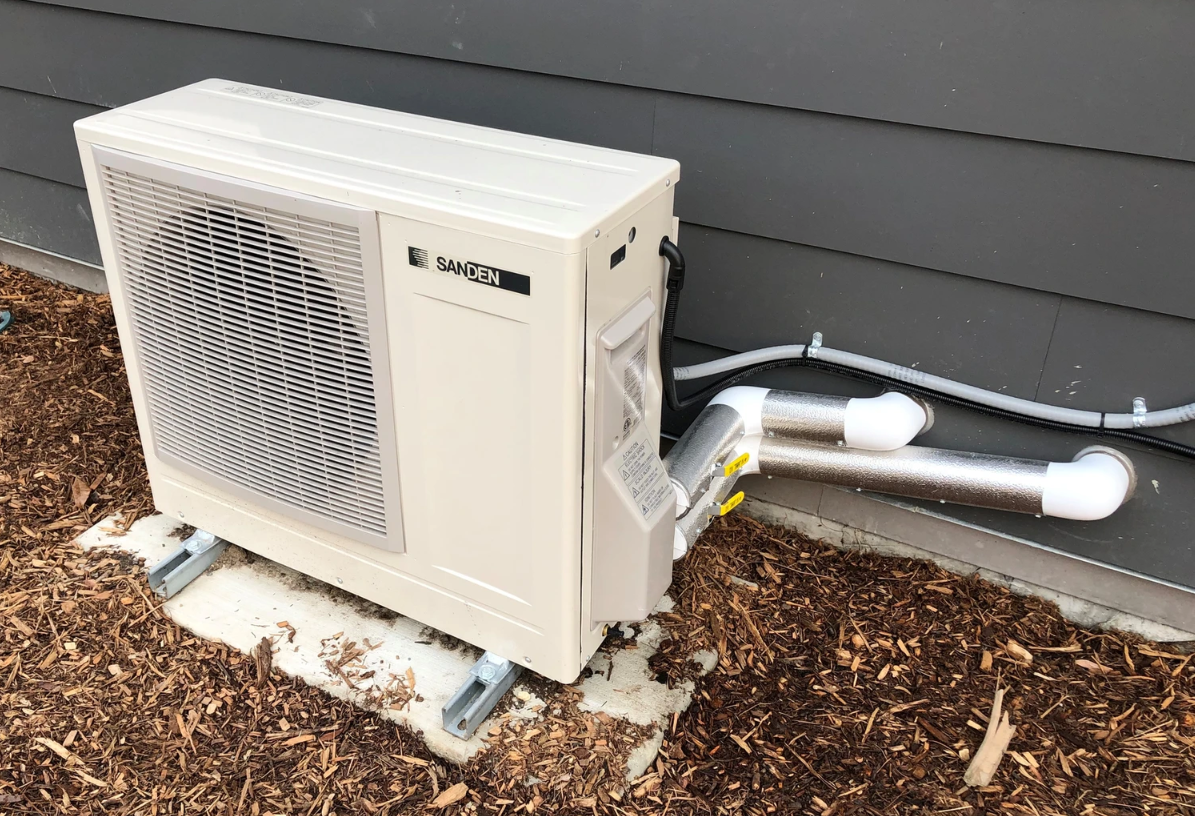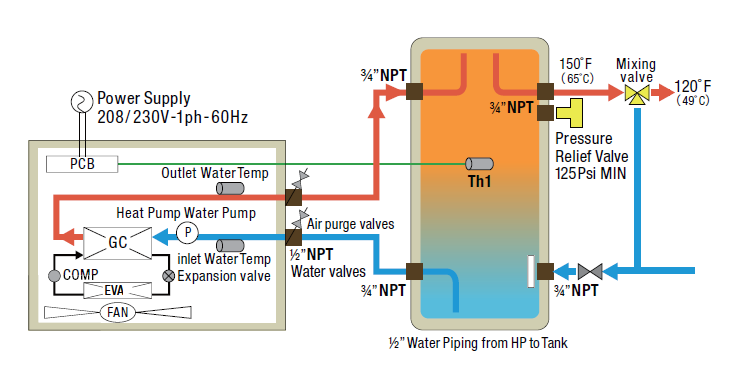Decarbonization and Electrification with Air to Water Heat Pumps
 So you may have heard all the buzz words coming out of the think tanks, then government agencies, now politician's mouths. "Decarbonization" and "electrification" basically mean the same thing. Generating heat in a building using electricity not burning carbon based fuels. (Please don't email me saying most electricity is generated by burning carbon fuels. This post is not about the merits of "electrification") Historically our primary method for producing heat from electricity was to use resistive heating elements. Most of these methods have put in an electric water heater or boiler, or electric heat wires installed in a fireproof heating substrate like concrete in the building. These resistive heating elements have performed well as they have been 100% energy efficient with no chimney or combustion. However, there has been a better solution living in some fringe areas.
So you may have heard all the buzz words coming out of the think tanks, then government agencies, now politician's mouths. "Decarbonization" and "electrification" basically mean the same thing. Generating heat in a building using electricity not burning carbon based fuels. (Please don't email me saying most electricity is generated by burning carbon fuels. This post is not about the merits of "electrification") Historically our primary method for producing heat from electricity was to use resistive heating elements. Most of these methods have put in an electric water heater or boiler, or electric heat wires installed in a fireproof heating substrate like concrete in the building. These resistive heating elements have performed well as they have been 100% energy efficient with no chimney or combustion. However, there has been a better solution living in some fringe areas.
Heat Pumps - Heat Pumps have the ability to generate more energy output than energy input. They have a COP. Meaning the greater the COP the more energy you make for every dollar spent.
Co-efficient of Performance (COP) = Energy Output / Energy Input
COP > 1 means you are producing more energy than you are consuming.
This sounds great! Except that heat pumps have had limited applications due to heat transfer inefficiencies with outdoor temperatures. Air to Air and Air to Water Heat Pumps produce heat by compressing a refrigerant and extracting that heat. The HP then re-heats the refrigerant with ambient air. The problem is that the unit becomes less efficient as the ambient (outdoor) temperatures drop. Such that they were only useful in mild climates.
People living in colder climates had to resort to ground water heat pumps which would extract heat from the ground which keeps a constant temperature well above the ambient air temperature. This seems great except that installation of the ground loops tends to require heavy equipment and can be cost prohibitive compared to alternatives for most installations.
 CO2 Heat Pumps - New on the scene is the Heat Pump that uses CO2 as the refrigerant. CO2 has better performance at lower ambient temperatures (COP = 2.8 @ 17 F). That means you get $2.80 of heat for every $1.00 you spend! Wait! Really? Yes, Really!
CO2 Heat Pumps - New on the scene is the Heat Pump that uses CO2 as the refrigerant. CO2 has better performance at lower ambient temperatures (COP = 2.8 @ 17 F). That means you get $2.80 of heat for every $1.00 you spend! Wait! Really? Yes, Really!
CO2 is also considered the most environmentally friendly refrigerant available. Units can run from -25 F to 104F.
But I have a 98% efficient gas boiler. Isn't that really good? Yes that is really good, except you only get $.98 of heat for every $1.00 of gas burned.
Easy to Install - Manufacturers are now making their units as "turn key" as possible. The compressor unit (Monobloc) is self contained and pre-charged with refrigerant. No need to charge on-site. The Monoboc is installed outside and supply/return piping in run into the building to a storage tank where the water can be tempered for domestic hot water or space heating. No, specialized trades or equipment needed to install.

Is it sustainable? - Can my house or local grid handle the extra loads we are going to be putting on it? If there is a power outage can my gas powered generator keep up with the load and save me from costly repairs? How does my grid generate power and is it actually more energy efficient than burning natural gas or propane? Please pass the questions to your electrician and local representative for their professional opinion.
How to Buy - So, what's this cost? Is this good for my project? What should I buy and how does it all go together? All good questions. Check out our next Blog post on applying an Air to Water Heat Pump for Radiant Floor Heating and contact us for a Free Estimate.